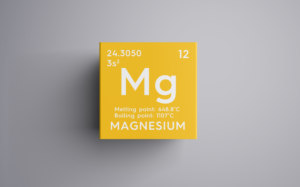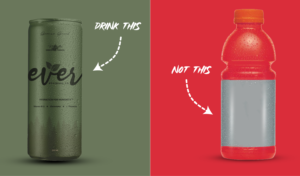
Staying hydrated is essential for overall health, especially for those who lead an active lifestyle. In this comprehensive guide, we’ll explore the differences between water and electrolyte drinks, highlighting the benefits of electrolyte drinks for post-workout hydration.
The Basics of Hydration
Staying hydrated is essential for maintaining optimal health and well-being. It’s important to drink plenty of fluids throughout the day, especially during hot weather or when engaging in physical activity, to ensure proper hydration.
Here are some key reasons why hydration is important:
Regulating Body Temperature: Water helps regulate your body temperature through sweating and respiration. Proper hydration is essential, especially during hot weather or physical activity, to prevent overheating.
Supporting Physical Performance: Staying hydrated is important for maintaining physical performance. Dehydration can lead to decreased endurance, strength, and coordination, affecting athletic performance and everyday activities.
Aiding in Digestion: Water is essential for the digestion and absorption of nutrients. It helps dissolve nutrients and move them through the digestive tract, preventing constipation and supporting overall digestive health.
Maintaining Blood Pressure: Adequate hydration helps maintain blood volume and supports the function of the heart. Dehydration can lead to a drop in blood pressure, potentially causing dizziness, lightheadedness, and other health issues.
Cushioning Joints and Organs: Water acts as a lubricant and cushion for joints, protecting them from damage during physical activity. It also helps protect vital organs, such as the brain, spinal cord, and fetus during pregnancy.
Removing Waste and Toxins: Water plays a crucial role in flushing out waste products and toxins from the body through urine, sweat, and bowel movements. Proper hydration helps maintain kidney function and prevent urinary tract infections.
Supporting Skin Health: Adequate hydration helps maintain skin elasticity and moisture, reducing the risk of dryness, wrinkles, and other skin problems. Drinking enough water can also help flush out toxins that can affect skin health.
Boosting Energy Levels: Dehydration can lead to feelings of fatigue and low energy levels. Staying hydrated can help maintain optimal energy levels and improve overall mood and cognitive function.
During exercise, you lose electrolytes through sweat, primarily sodium and potassium. Replenishing these electrolytes is important for maintaining hydration and supporting muscle function. Electrolyte drinks are specifically formulated to replace these lost electrolytes.
A Caution For Drinking Too Much Water
Water doesn’t contain any electrolytics, and in fact, drinking excessive amounts of water without replenishing electrolytes can actually dilute the electrolytes in your body and lead to some negative health risks.
Here are some reasons why drinking too much water can be bad for you:
Hyponatremia: Drinking too much water can dilute the levels of sodium in your blood, leading to a condition called hyponatremia. Symptoms of hyponatremia include nausea, vomiting, headache, confusion, and in severe cases, seizures and coma.
Electrolyte Imbalance: Excessive water intake can disrupt the balance of electrolytes in your body, including sodium, potassium, and magnesium. This imbalance can affect nerve and muscle function, leading to symptoms such as muscle cramps, weakness, and irregular heartbeat.
Increased Urination: Drinking too much water can lead to frequent urination, which can disrupt your daily activities and sleep patterns. It can also put strain on your kidneys, potentially leading to kidney problems over time.
Water Intoxication: In rare cases, excessive water intake can lead to water intoxication, also known as water poisoning. This occurs when the kidneys are unable to excrete the excess water, leading to swelling of the brain cells and potentially life-threatening complications.
Digestive Issues: Drinking large amounts of water in a short period of time can overwhelm your digestive system, leading to bloating, discomfort, and in some cases, nausea and vomiting.
Impaired Kidney Function: Chronic overhydration can put strain on your kidneys and may increase the risk of developing kidney problems over time, such as kidney stones or kidney damage.
Hyponatremic Encephalopathy: In severe cases of hyponatremia, the swelling of brain cells can lead to a condition called hyponatremic encephalopathy, which can cause symptoms such as confusion, seizures, and coma.
It’s important to listen to your body’s thirst cues and drink water in moderation to avoid these negative effects. If you have any concerns about your hydration levels, it’s always best to consult with a healthcare professional.
Electrolyte Drinks: Replenishing Essential Minerals
Electrolytes are minerals in your body that carry an electric charge. They play a crucial role in maintaining hydration, regulating pH levels, and supporting nerve and muscle function. The primary electrolytes include sodium, potassium, calcium, and magnesium.
Electrolyte drinks contain a combination of sodium, potassium, calcium, and magnesium, along with carbohydrates for energy. These drinks are designed to replace electrolytes lost through sweat, making them an effective choice for post-workout hydration.
Studies suggest that electrolyte drinks may be more effective than water alone for rehydrating after exercise, especially in hot environments or during prolonged exercise. One study found that participants who consumed an electrolyte beverage retained more fluids than those who drank water after exercise.
Benefits of Electrolytes for Muscle Function
Maintaining a proper balance of electrolytes in the body is crucial, as an imbalance can lead to symptoms such as muscle cramps, fatigue, and dizziness. Electrolyte drinks can help restore balance, but it’s essential to consume them in moderation to avoid overloading the body with electrolytes.
Potassium and magnesium, two essential electrolytes, play a critical role in muscle contractions. A deficiency in these electrolytes can lead to muscle cramps and weakness, highlighting the importance of replenishing electrolytes after exercise.
Electrolytes and Nerve Function
Sodium and potassium are crucial for transmitting nerve impulses. A deficiency in these electrolytes can lead to nerve dysfunction and potentially serious health issues. Replenishing electrolytes is essential for maintaining proper nerve function.

Choosing the Right Electrolyte Drink
Selecting the appropriate electrolyte drink depends on several factors, including the intensity and duration of your workout, as well as your individual electrolyte needs. For shorter, less intense workouts, a basic electrolyte drink may suffice. However, for longer or more intense activities, you may require a drink with a higher electrolyte content to replenish what’s lost through sweat.
Caution with Electrolyte Drinks
While electrolyte drinks can be beneficial, it’s important to consume them in moderation. Excessive consumption can lead to an imbalance of electrolytes in the body, which can have negative health effects. Be mindful of how much you’re consuming and consider alternating between electrolyte drinks and plain water to maintain balance.
Hydration needs can vary significantly from person to person based on factors such as age, weight, activity level, and climate. It’s essential to listen to your body and adjust your hydration strategies accordingly. If you’re unsure about your hydration needs, consider consulting a healthcare professional for personalized advice.

Case Studies on Hydration
Rehydration with Caffeinated Beverages: The Maughan RJ Study
In a study conducted by Maughan RJ and colleagues, the effectiveness of rehydration with caffeinated beverages was compared to noncaffeinated beverages during the nonexercise periods of 3 consecutive days of 2-a-day practices. The study aimed to determine whether caffeine had any impact on post-exercise fluid replacement.
The results of the study indicated that caffeinated beverages were as effective as noncaffeinated beverages for post-exercise fluid replacement. This finding suggests that consuming caffeinated beverages may not negatively affect hydration levels after exercise, contrary to popular belief.
Rehydration and Sodium Concentration: The Shirreffs SM Study
Shirreffs SM et al. conducted a study to compare the effects of different sodium concentrations in drinks on rehydration after exercise-induced dehydration. The study aimed to determine the optimal sodium concentration in beverages for restoring fluid balance after dehydration.
The findings of the study revealed that drinks with higher sodium concentrations were more effective in restoring fluid balance compared to drinks with lower sodium concentrations. This suggests that athletes and individuals engaging in prolonged or intense physical activity may benefit from consuming beverages with higher sodium concentrations to aid in rehydration.
Fluid Composition and Kidney Stone Risk: The Jewett DL Study
In a study by Jewett DL et al., the effects of fluid composition on exercise-related outcomes in individuals with recurrent kidney stones were investigated. The study focused on the impact of fluid composition, particularly calcium and magnesium content, on the risk of kidney stone formation.
The results of the study demonstrated that a beverage with a higher calcium and magnesium content reduced the risk of stone formation in individuals with recurrent kidney stones. This suggests that maintaining adequate levels of calcium and magnesium through fluid intake may help reduce the risk of kidney stone formation in susceptible individuals.
These studies provide valuable insights into the effects of different beverage compositions on hydration and health outcomes, highlighting the importance of choosing the right fluids for optimal hydration and performance.
Choosing the Right Drink for Your Body
When it comes to hydration, the choices we make can make all the difference. While water is essential for everyday hydration, electrolyte drinks can provide a much-needed boost after intense exercise or in hot environments. By understanding the role of electrolytes in hydration, we can make informed decisions about our fluid intake to support our health and performance.
Remember, maintaining electrolyte balance is key to avoiding symptoms like muscle cramps, fatigue, and dizziness. Whether you prefer natural sources of electrolytes or opt for electrolyte drinks, moderation is key. By listening to your body and adjusting your hydration strategy accordingly, you can ensure that you’re giving your body the hydration it needs to thrive.
So, next time you reach for a drink, consider the power of hydration and choose the right one for your body. Your health and performance will thank you for it!




